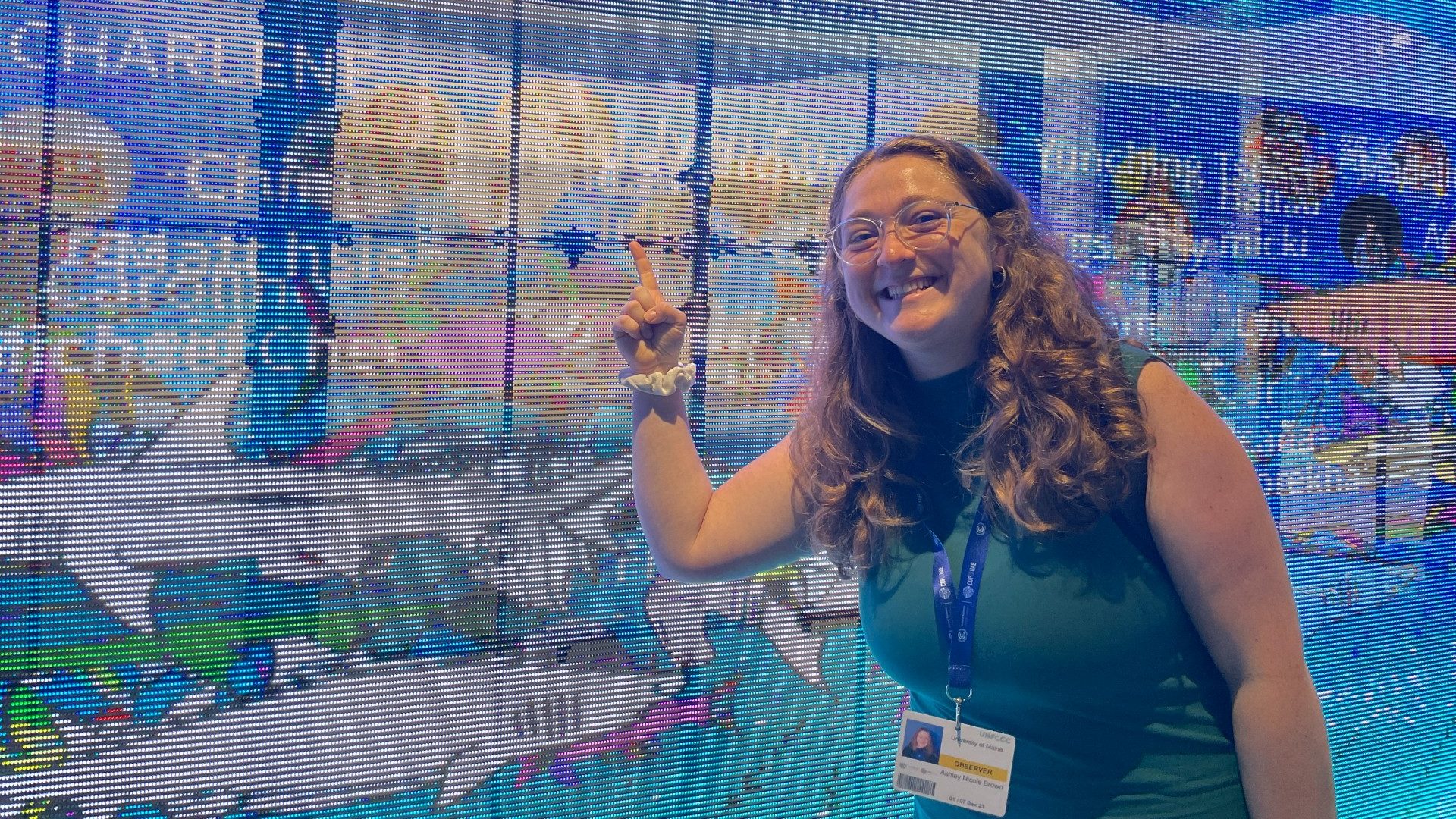
Beyond the Numbers: Connection at COP28
By Ashley Brown
For better or for worse, watching people walk by at COP28 there is only one word to describe people’s faces: determined. Whether it be phone calls while power walking or on-the-move networking not a single second is wasted. I saw someone with their phone and two laptops open while eating their lunch, and another dictating to their phone while handwriting notes about something else. The dedication is inspiring– and intimidating.
It’s just so easy to feel overwhelmed with the seemingly endless options and barriers to tackling climate change: being surrounded by some of the world’s best and brightest minds on climate change feeds into these feelings of confusion and inadequacy. There is no clear path, no crystalline choice, no obvious answer. But, there is each other. When we’re attempting to quantify everything from GHG emissions to our goals we accidentally leave out connection, something so vital to our existence. When we wear our hats of negotiators and delegates, we often talk about data and things that are easily quantified.The negotiations are clinical. Rooms are colder, chairs spaced further apart. Emotion and human connection feel removed. Numbers can be quite compelling, but always a little detached. Stories connect us, allowing us to understand each other in ways statistics and facts can’t. At the heart of the climate crisis is people: we need to be able to connect to each other in order to solve this as fast as we can.
I observed a discussion during a pavilion event that was neither hopeful nor full of despair, but about what it means to be a person here at COP28. Not an observer, a party member, a student, a sanitation worker, or a head of state—just a person trying to live in a world that often feels like it’s falling apart. The two talked about how they were from Sudan and Somalia, but raised here in the UAE. In particular, they focus on their connection to the sand that surrounds us.
Deserts tend to have certain narratives surrounding them: arid, dry, empty, and inhospitable. Picture the yellowish filter Hollywood puts on every movie set in the Middle East.
They called it “the washing,” speaking out against these narratives and the subsequent weaponization of the desert against migrant groups in Africa and their own communities. They said it feels wrong to view sand in this way, knowing it has been villainized. Erasing the landscape of their youth. Sand reminds them of the beach, playing as children, and home. The two expressed sorrow at the fact that their childhood memories are being replaced with fears of climate change and overconsumption as Jumeirah beach has been gentrified, and the desert encroached by the city.
One of them segued into discussing the imposter syndrome they feel here at COP28, saying “I’m just trying to tell my story” but that it often feels like everything overshadows her as an individual. Agreeing, her co-host dives into some of her own feelings regarding COP28, most notably anger and frustration. “We’re just kids,” she said, her voice almost cracking,“We’re not supposed to be trying to save the world- but it’s what we were stuck with.” Chiming in, the other girl says that “It’s okay to say ‘I don’t know’– there is so much general confusion and multiplicities of everything, it’s all intricate and complex and just see how you can navigate around them.” If we knew the right way to solve climate change all of us would agree, but the only thing we agree on is that Climate Change is a problem. How to solve it is a whole 70,000-different-people story that has already taken almost thirty years. There is no one ‘silver bullet’ solution so we must wade through the uncertainty to find our way out of the climate crisis. It’s okay not to know, to not agree– but it’s not okay to not try.
Connecting, inspiring hope, and telling our stories is working to fight the climate crisis, even if it may not be as quantifiable as hard data.

